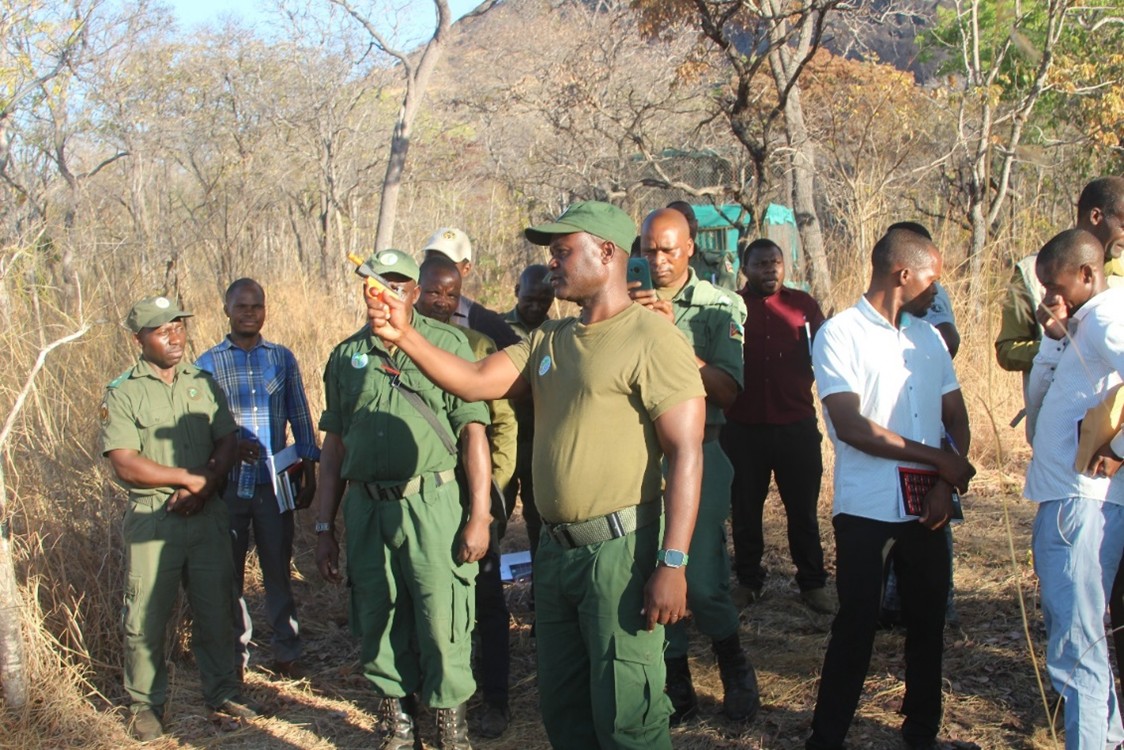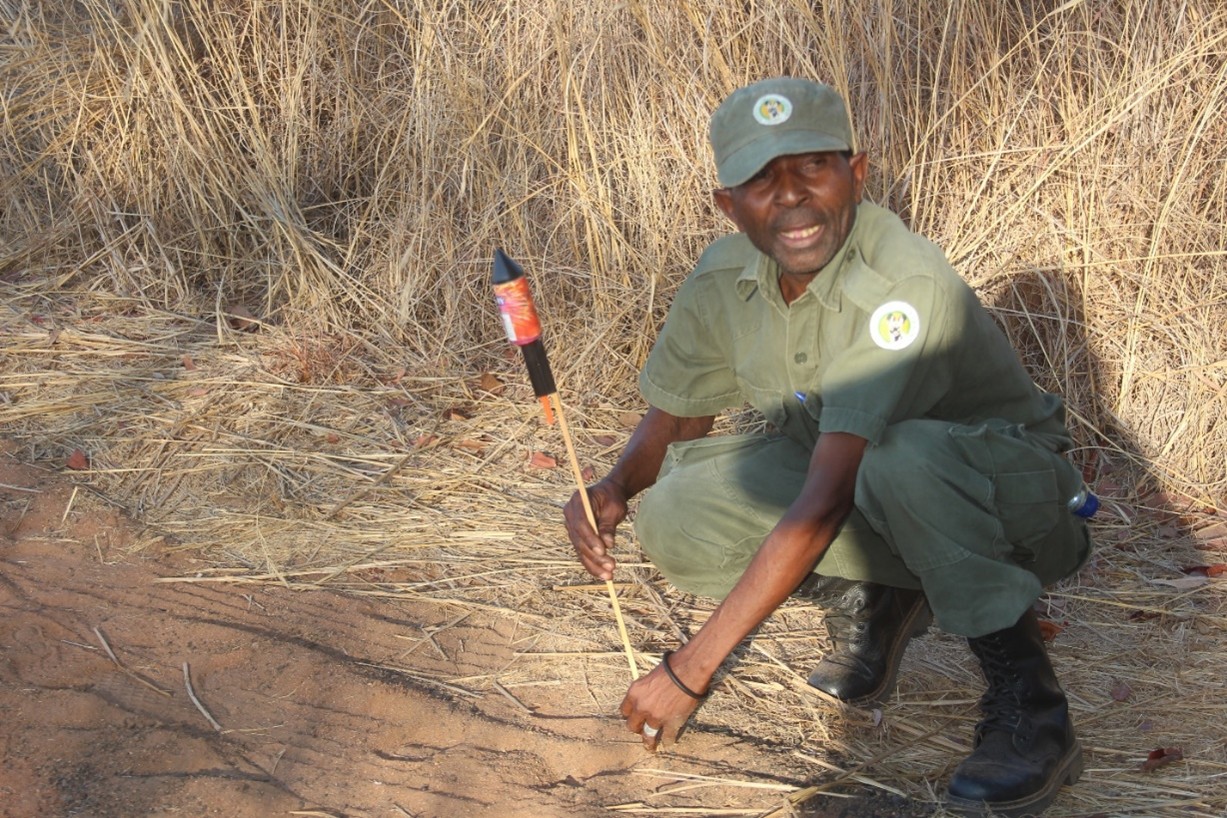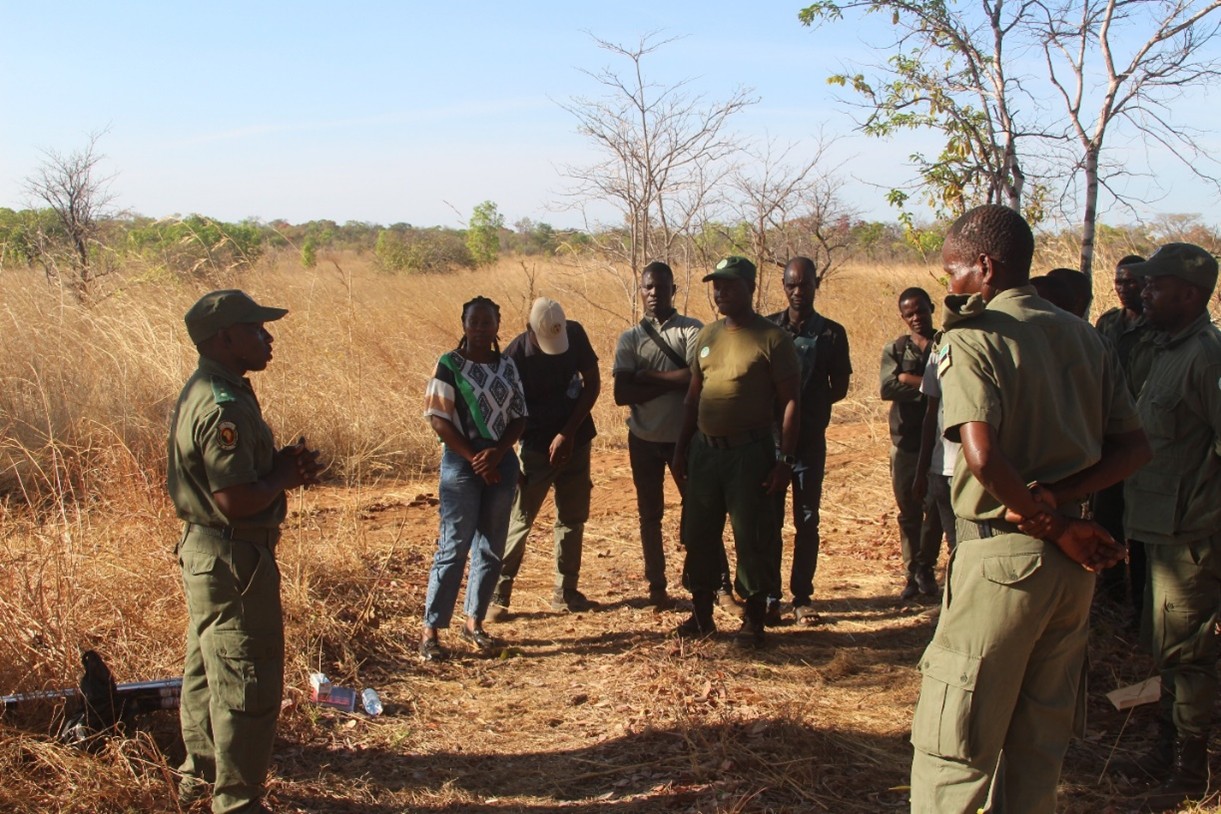On 15 October 2025, a Training of Trainers (ToT) in Human-Wildlife Conflict Mitigation (HWC) was held in Mbatamila, in the Niassa Special Reserve (NSR), organised by the NSR Administration, within the scope of the Northern Mozambique Rural Resilience Project (MozNorte), funded by the World Bank Group, channelled by the Foundation for the Conservation of Biodiversity (BIOFUND), and implemented in the NSR by the Wildlife Conservation Society (WCS) Mozambique in partnership with the National Administration of Conservation Areas (ANAC). The main objective of this training was to strengthen the technical and coordination capacities of the Rapid Response Teams, the district technicians of the District Service of Economic Activities (SDAE), and community representatives, promoting rapid, safe and collaborative responses to incidents resulting from the conflict with wildlife, as well as decentralizing the response capacity at the local level.
During the sessions, topics related to the main causes of conflicts, scaring away methods, safe use of equipment, monitoring through the SMART (Spatial Monitoring and Reporting Tool) system, Earth Ranger, Incident Registration and One Health approaches were addressed. Strategies for community engagement, awareness-raising, victims before and after incidents, and issues of social and environmental safeguards, gender and human rights, as well as Dialogue and Grievance Mechanism (DGM) in the context of HWC mitigation were also discussed.

The training combined theoretical sessions, practical in the field and simulation exercises, exploring the different causes and dynamics of conflicts between people and wildlife. The participants, including members of the newly structured Rapid Response Teams, unanimously highlighted that the training was very useful and practical, providing simple tools and strategies applicable to each situation faced in the communities.

The training was attended by 22 technicians, including inspectors from NSR's HWC sector, representatives of Luwire, the SDAE of Mecula, Mavago and Marrupa, and the Negomano Administrative Post, reinforcing the spirit of inter-institutional collaboration and decentralized coordination between the teams.

This initiative is part of the joint efforts of NSR, WCS, ANAC and partners to promote harmonious coexistence between communities and wildlife, strengthening the role of local authorities in the participatory and sustainable management of natural resources. The next step is the signing of implementation commitments and the delivery of operational resources to the teams, ensuring more effective and timely responses, within an early warning system, to be formalised at the next Meeting of NSR's Management Board.